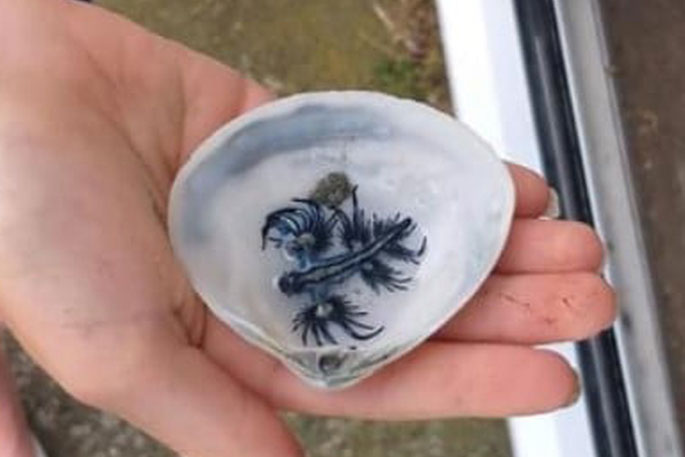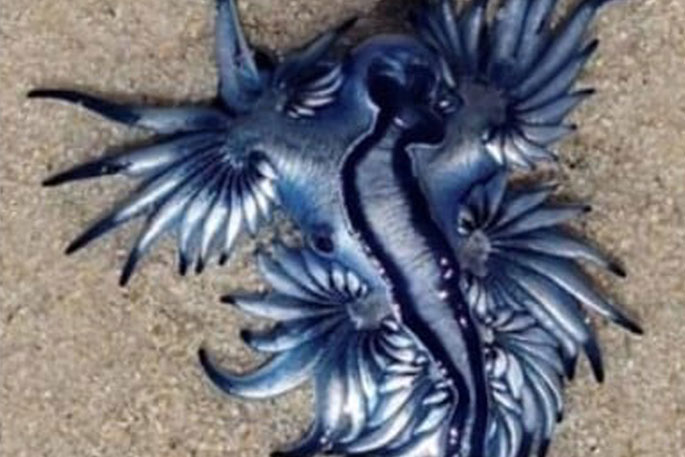People out walking along Bay of Plenty beaches are being asked to report any sightings of a blue sea slug.
The Bay of Plenty Regional Council says there have been isolated reports of the sea slugs (also known as Sea swallow) in various locations along the coast.
People who have seen the slug washed up on any beaches in the BOP are asked to comment on the Regional Council's Facebook page here.
'We have been made aware that a large number of blue sea slugs Glaucus atlanticus have been washing up on the Ohope beach this (Tuesday) afternoon,” says a post on the Regional Council Facebook page.
'If you see them please don't touch them and keep dogs away from them.
'They may look amazing but can cause a very painful and potentially dangerous sting if handled.
'These sea slugs feed on blue bottles which will often be found washed up on the beach alongside them.”

What is Glaucus atlanticus?
Glaucus atlanticus is also known by a number of other names including, the blue sea dragon, sea swallow, blue angel, blue glaucus, dragon slug, blue dragon, blue sea slug and blue ocean slug.
It's a species of small, blue sea slug, a pelagic aeolid nudibranch, a shell-less gastropod mollusk in the family Glaucidae.
These sea slugs are pelagic; they float upside down by using the surface tension of the water to stay up, where they are carried along by the winds and ocean currents. Glaucus atlanticus makes use of countershading: the blue side of their body faces upwards, blending in with the blue of the water.
The silver/grey side of the sea slugs faces downwards, blending in with the sunlight reflecting on the ocean's surface when viewed facing upwards underwater.
Glaucus atlanticus feed on other pelagic creatures, including the Portuguese man o' war and other venomous siphonophores.
This sea slug stores stinging nematocysts from the siphonophores within its own tissues as defence against predators.
Humans handling the slug may receive a very painful and potentially dangerous sting.



1 comment
Amazing!
Posted on 31-03-2021 13:46 | By morepork
Learned a number of new words and found the article fascinating.
Leave a Comment
You must be logged in to make a comment.